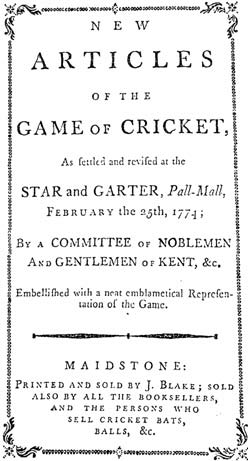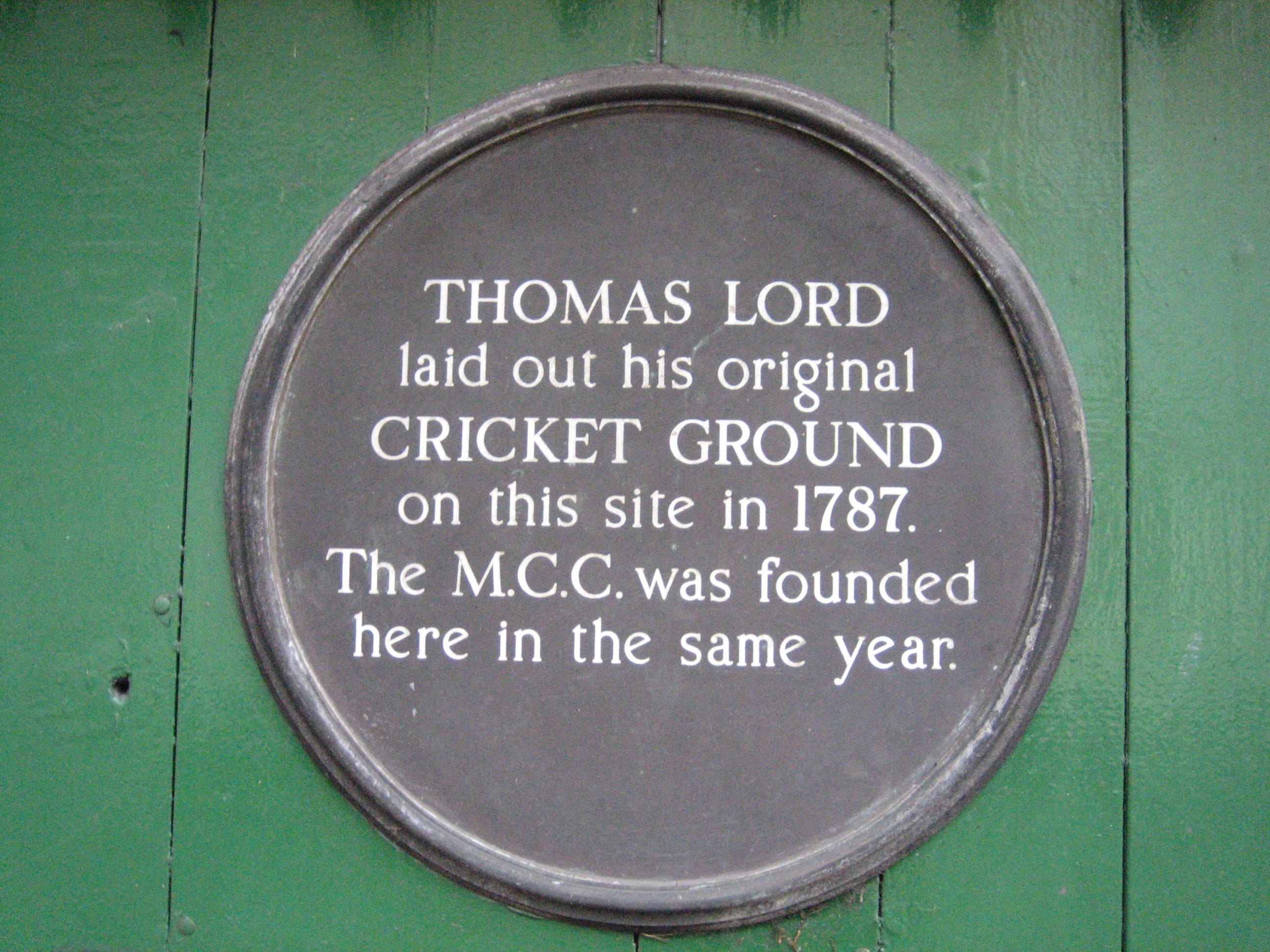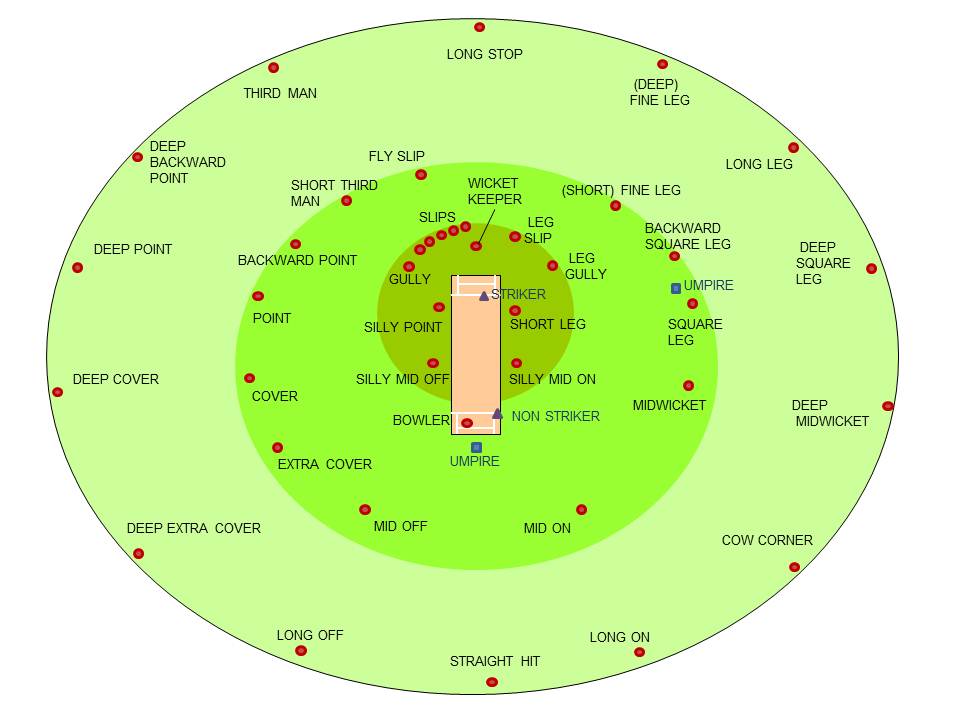|
Harold Heygate
Harold John Heygate, born at Wellingborough, Northamptonshire, on 4 August 1884 and died at Guildford, Surrey on 27 June 1937 was a cricketer of very minor distinction except in one respect: his role in his final first-class game led to a situation that is almost certainly unique and that caused a sensation at the time. Cricket career Heygate's conventional cricket career can be dismissed in a few sentences. Educated at Epsom College, he was a right-handed opening batsman who played five times in first-class matches for Sussex between 1903 and 1905. Only in one match, against Kent at Tonbridge in 1905, when he scored 80 and an undefeated 68, did he show any particular talent. After 1905, he did not play again in the years leading up to the First World War, though he appeared for Canada against the United States in 1908. The Heygate Incident of 1919 Heygate's enduring fame rests on a single final appearance for Sussex in the match against Somerset at the County Ground, Tau ... [...More Info...] [...Related Items...] OR: [Wikipedia] [Google] [Baidu] |
Wellingborough
Wellingborough ( ) is a large market and commuter town in the unitary authority area of North Northamptonshire in the ceremonial county of Northamptonshire, England, 65 miles from London and from Northampton on the north side of the River Nene. Originally named "Wendelingburgh" (the stronghold of Wændel's people), the Anglo-Saxon settlement is mentioned in the Domesday Book of 1086 as "Wendelburie". The town was granted a royal market charter in 1201 by King John. At the 2011 census, the town's built-up area had a population of 50,577. The Wellingborough built-up area also includes suburbs Wilby, Great Doddington, Little Irchester and Redhill Grange. History The town was established in the Anglo-Saxon period and was called "Wendelingburgh". It is surrounded by five wells: Redwell, Hemmingwell, Witche's Well, Lady's Well and Whytewell, which appear on its coat of arms. Henrietta Maria came with her physician Théodore de Mayerne to take the waters on 14 July 1627. ... [...More Info...] [...Related Items...] OR: [Wikipedia] [Google] [Baidu] |
Wisden Cricketers' Almanack
''Wisden Cricketers' Almanack'', or simply ''Wisden'', colloquially the Bible of Cricket, is a cricket reference book published annually in the United Kingdom. The description "bible of cricket" was first used in the 1930s by Alec Waugh in a review for the '' London Mercury''. In October 2013, an all-time Test World XI was announced to mark the 150th anniversary of ''Wisden Cricketers' Almanack''. In 1998, an Australian edition of ''Wisden Cricketers' Almanack'' was launched. It ran for eight editions. In 2012, an Indian edition of ''Wisden Cricketers' Almanack'' was launched (dated 2013), entitled ''Wisden India Almanack'', that has been edited by Suresh Menon since its inception. History ''Wisden'' was founded in 1864 by the English cricketer John Wisden (1826–84) as a competitor to Fred Lillywhite's ''The Guide to Cricketers''. Its annual publication has continued uninterrupted to the present day, making it the longest running sports annual in history. The six ... [...More Info...] [...Related Items...] OR: [Wikipedia] [Google] [Baidu] |
1884 Births
Events January–March * January 4 – The Fabian Society is founded in London. * January 5 – Gilbert and Sullivan's '' Princess Ida'' premières at the Savoy Theatre, London. * January 18 – Dr. William Price attempts to cremate his dead baby son, Iesu Grist, in Wales. Later tried and acquitted on the grounds that cremation is not contrary to English law, he is thus able to carry out the ceremony (the first in the United Kingdom in modern times) on March 14, setting a legal precedent. * February 1 – ''A New English Dictionary on historical principles, part 1'' (edited by James A. H. Murray), the first fascicle of what will become ''The Oxford English Dictionary'', is published in England. * February 5 – Derby County Football Club is founded in England. * March 13 – The siege of Khartoum, Sudan, begins (ends on January 26, 1885). * March 28 – Prince Leopold, the youngest son and the eighth child of Queen Victoria ... [...More Info...] [...Related Items...] OR: [Wikipedia] [Google] [Baidu] |
Timed Out
Timed out is a method of dismissal in the sport of cricket. It occurs when an incoming batsman is not ready to play within three minutes of the previous batsman being out. It is very rare to be out in such a fashion, and has never occurred in any international match. Definition Law 40 of the ''Laws of Cricket'' provides that an incoming batsman must be in position to take guard or for his partner to be ready to receive the next ball within three minutes of the fall of the previous wicket. If this requirement is not met, the incoming batsman will be given out, timed out, on appeal. The "incoming batsman" may be any batsman who has not yet batted. There is no prescribed batting order in cricket. If no batsman has set foot on the field when the appeal is made, the batting captain may pick any player who has not yet batted as the one to be given out. As a result, if the next batsman was only slightly delayed, the captain would be expected to sacrifice his worst batsman—usually the ... [...More Info...] [...Related Items...] OR: [Wikipedia] [Google] [Baidu] |
Laws Of Cricket
The ''Laws of Cricket'' is a code which specifies the rules of the game of cricket worldwide. The earliest known code was drafted in 1744 and, since 1788, it has been owned and maintained by its custodian, the Marylebone Cricket Club (MCC) in London. There are currently 42 Laws (always written with a capital "L") which outline all aspects of how the game is to be played. MCC has re-coded the Laws six times, the seventh and latest code being released in October 2017. The 2nd edition of the 2017 Code came into force on 1 April 2019. The first six codes prior to 2017 were all subject to interim revisions and so exist in more than one version. MCC is a private club which was formerly cricket's official governing body, a role now fulfilled by the International Cricket Council (ICC). MCC retains copyright in the Laws and only the MCC may change the Laws, although usually this is only done after close consultation with the ICC and other interested parties such as the Association of Cricke ... [...More Info...] [...Related Items...] OR: [Wikipedia] [Google] [Baidu] |
Marylebone Cricket Club
Marylebone Cricket Club (MCC) is a cricket club founded in 1787 and based since 1814 at Lord's Cricket Ground, which it owns, in St John's Wood, London. The club was formerly the governing body of cricket retaining considerable global influence. In 1788, the MCC took responsibility for the laws of cricket, issuing a revised version that year. Changes to these Laws are now determined by the International Cricket Council (ICC), but the copyright is still owned by MCC. When the ICC was established in 1909, it was administered by the secretary of the MCC, and the president of MCC automatically assumed the chairmanship of ICC until 1989. For much of the 20th century, commencing with the 1903–04 tour of Australia and ending with the 1976–77 tour of India, MCC organised international tours on behalf of the England cricket team for playing Test matches. On these tours, the England team played under the auspices of MCC in non-international matches. In 1993, its administrativ ... [...More Info...] [...Related Items...] OR: [Wikipedia] [Google] [Baidu] |
Timed Out
Timed out is a method of dismissal in the sport of cricket. It occurs when an incoming batsman is not ready to play within three minutes of the previous batsman being out. It is very rare to be out in such a fashion, and has never occurred in any international match. Definition Law 40 of the ''Laws of Cricket'' provides that an incoming batsman must be in position to take guard or for his partner to be ready to receive the next ball within three minutes of the fall of the previous wicket. If this requirement is not met, the incoming batsman will be given out, timed out, on appeal. The "incoming batsman" may be any batsman who has not yet batted. There is no prescribed batting order in cricket. If no batsman has set foot on the field when the appeal is made, the batting captain may pick any player who has not yet batted as the one to be given out. As a result, if the next batsman was only slightly delayed, the captain would be expected to sacrifice his worst batsman—usually the ... [...More Info...] [...Related Items...] OR: [Wikipedia] [Google] [Baidu] |
Test Cricket
Test cricket is a form of first-class cricket played at international level between teams representing full member countries of the International Cricket Council (ICC). A match consists of four innings (two per team) and is scheduled to last for up to five days. In the past, some Test matches had no time limit and were called Timeless Tests. The term "test match" was originally coined in 1861–62 but in a different context. Test cricket did not become an officially recognised format until the 1890s, but many international matches since 1877 have been retrospectively awarded Test status. The first such match took place at the Melbourne Cricket Ground (MCG) in March 1877 between teams which were then known as a Combined Australian XI and James Lillywhite's XI, the latter a team of visiting English professionals. Matches between Australia and England were first called "test matches" in 1892. The first definitive list of retrospective Tests was written by South Australian journ ... [...More Info...] [...Related Items...] OR: [Wikipedia] [Google] [Baidu] |
Alfred Street (cricket Umpire)
Alfred Edward Street, born at Godalming, Surrey, on 7 July 1869 and died at Exmouth, Devon, on 18 February 1951, was a cricket player for Surrey and later a respected cricket umpire who stood in several Test matches between 1912 and 1926. As a player, Street was a middle or lower order right-handed batsman and an occasional medium-pace bowler. He played regularly for the successful Surrey side in only three seasons, from 1894 to 1896, and his one innings of distinction was an unbeaten 161 against Leicestershire at Grace Road, Leicester in 1895, when his batting enabled a Surrey recovery from 94 for six wickets to reach a total of 385, which proved enough to win by an innings. He disappeared from first-class cricket after 1898. In 1909, Street joined the list of first-class umpires and remained on it for the following 25 years, retiring at the end of the 1934 season, though he reappeared for one match in 1939. He officiated in Test matches for the first time during the 1912 Tr ... [...More Info...] [...Related Items...] OR: [Wikipedia] [Google] [Baidu] |
Umpire (cricket)
In cricket, an umpire (from the Old French ''nompere'' meaning not a peer, i.e. not a member of one of the teams, impartial) is a person who has the authority to make decisions about events on the cricket field according to the '' Laws of Cricket''. Besides making decisions about legality of delivery, appeals for wickets and general conduct of the Game in a legal manner, the umpire also keeps a record of the deliveries and announces the completion of an over. A cricket umpire is not to be confused with the referee who usually presides only over international matches and makes no decisions affecting the outcome of the game. Overview Traditionally, cricket matches have two umpires on the field, one standing at the end where the bowler delivers the ball (bowler's end), and one directly opposite the facing batsman (usually, but not always, at square leg). However, in the modern game, there may be more than two umpires; for example Test Matches have four: two on-field umpires, a ... [...More Info...] [...Related Items...] OR: [Wikipedia] [Google] [Baidu] |
David Foot (journalist)
David Foot (24 April 1929 – 25 May 2021) was a British journalist and historian who wrote extensively on English cricket and the West Country. Foot was born in the Somerset village of East Coker and spent most of his life in Somerset and Gloucestershire. He began his journalistic career with the '' Western Gazette'' in Yeovil before moving on to the ''Bristol Evening World''. From 1962 onwards he worked largely as a freelance. In the national press he contributed primarily to '' The Guardian'' from 1971 to 2011, writing chiefly on Somerset and Gloucestershire cricket, together with some football reports and theatre reviews. He also wrote a weekly column for the '' Western Daily Press'' for about 20 years. According to Scyld Berry, he was one of the last regional writers. It was "not only the quality of his work, but the speed" with which he wrote that was remarkable.Scyld Berry, "'Footy' cast a light on secret torment of a cricketer's life", Daily Telegraph sport section, ... [...More Info...] [...Related Items...] OR: [Wikipedia] [Google] [Baidu] |
Jack MacBryan
John Crawford William MacBryan (22 July 1892 – 14 July 1983) was an English cricketer who played for Cambridge University and Somerset and made one almost imperceptible appearance in a Test match for England. MacBryan was also a field hockey international and won a gold medal at the 1920 Olympic Games with the Great Britain and Ireland team. MacBryan was educated at Exeter School, where he played cricket for the school and was captain in 1911. After school he joined the Somerset Light Infantry. In 1914, a month after the outbreak of World War I, he was wounded and captured at the battle of Le Cateau, and he was a prisoner for the rest of the war. After the war he went up to Jesus College, Cambridge, where he won his blue for cricket in 1920. An amateur and a right-hand batsman, MacBryan was the leading Somerset batsman in the years after the World War I and was called up for the Old Trafford Test match against the South Africans in 1924. But the match was ruined by ra ... [...More Info...] [...Related Items...] OR: [Wikipedia] [Google] [Baidu] |





